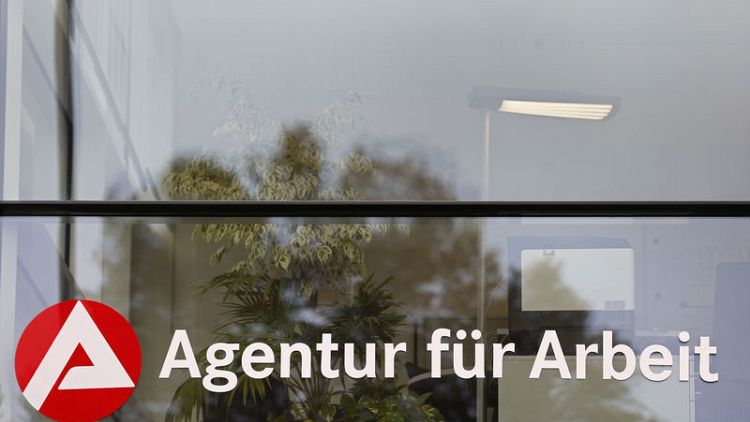BERLIN (Reuters) - Britain's expected exit from the European Union will not trigger a lasting slowdown in hiring in Germany, the Labour Office said on Thursday after figures showed the jobless total in Europe's largest economy fell less than expected in January.
The data showed the seasonally adjusted jobless total fell by 2,000 to 2.263 million. That compared with the forecast for a drop of 10,000.
The figures reflected seasonal factors like slower recruitment in the construction sector over the winter months as well as weaker job growth in both the services and the manufacturing sectors.
The office added, however, that demand for new hires among German companies remained solid.
This should support a consumption-led growth cycle in Europe's largest economy, which is experiencing a slowdown linked to trade frictions and concerns about a no-deal Brexit.
Labour Office head Detlef Scheele told a news conference that Brexit is not expected to have a lasting impact on hiring in Germany.
"Clearly branches like the aviation industry, transport and logistics are affected," Scheele said. "Yet we don't expect Brexit to have any long-term effect on the German labour market."
The unemployment rate remained at 5 percent, the lowest since German reunification in 1990.
Low interest rates and rising wages should help consumption offset weakening exports, which are driving a slowdown in the broader economy that has forced the government to slash its growth forecast for this year to 1 percent.
The HDE retail association said on Thursday that sales in the sector would growth for a tenth consecutive year in 2019, forecasting a 2 percent rise after a 2.3 percent increase last year.
Separate data released on Thursday showed German retail sales plummeted by 4.3 percent on the month in December, the fastest rate in 11 years, sending a worrying signal about household spending.
The fall in real terms was far weaker than a consensus forecast for a 0.6 percent drop. Sales also fell by 2.1 percent year-on-year.
A spokesman for the Statistics Office said the fall, the sharpest since 2007, was partly due to the comparison with a strong November which was boosted by pre-Christmas shopping and one-off discount days like Black Friday.
(Reporting by Joseph Nasr, Rene Wagner and Riham Alkoussa; Editing by Michelle Martin)



